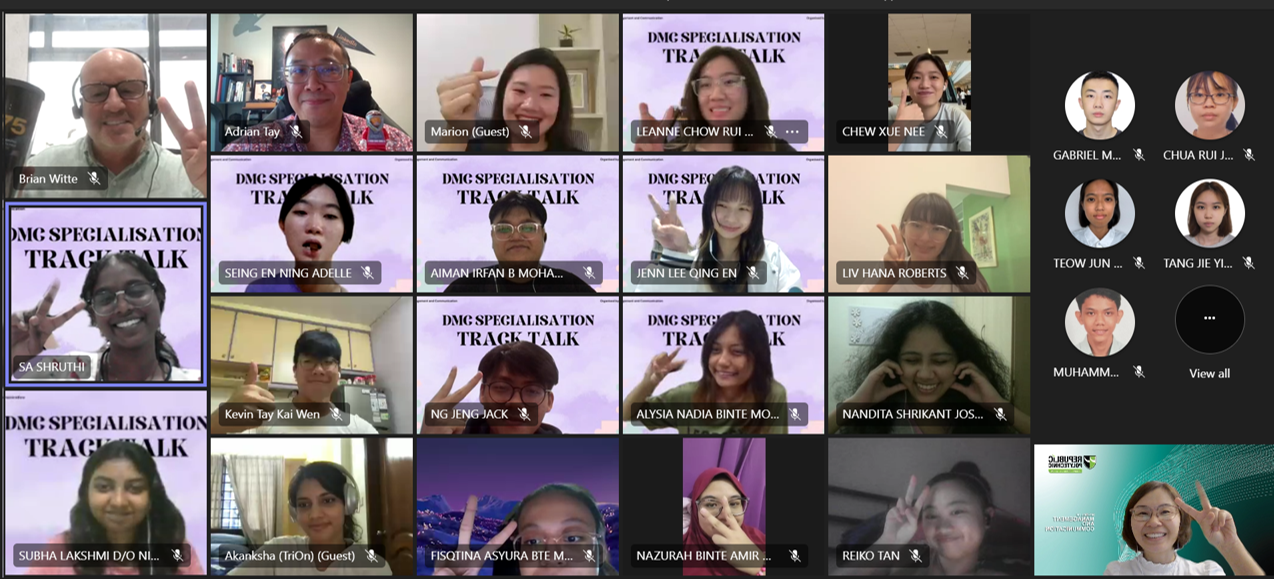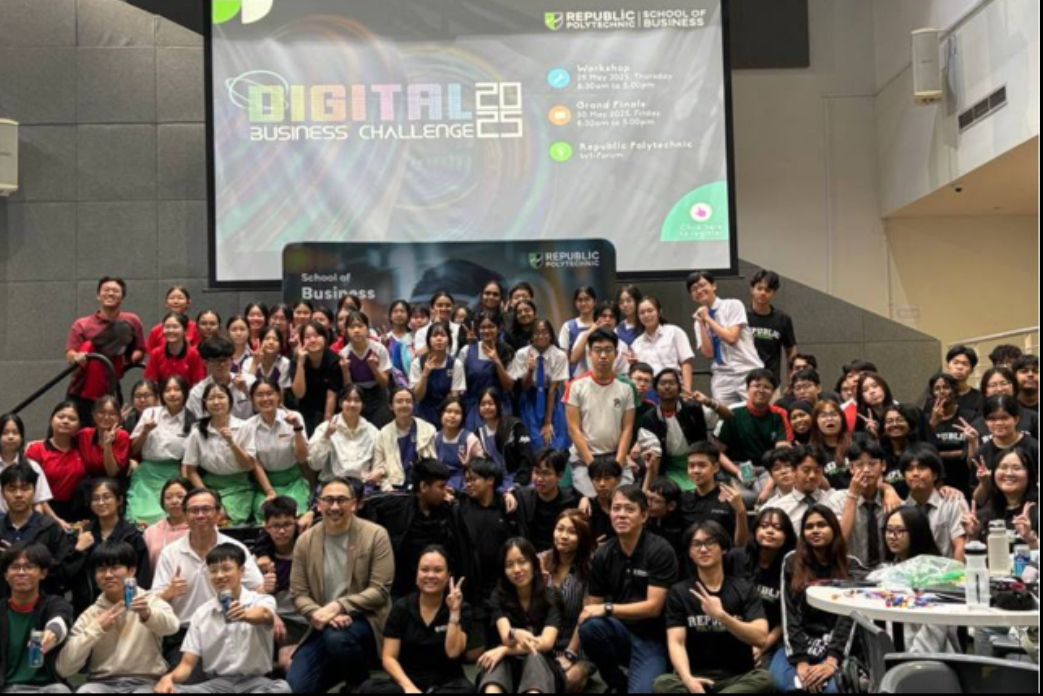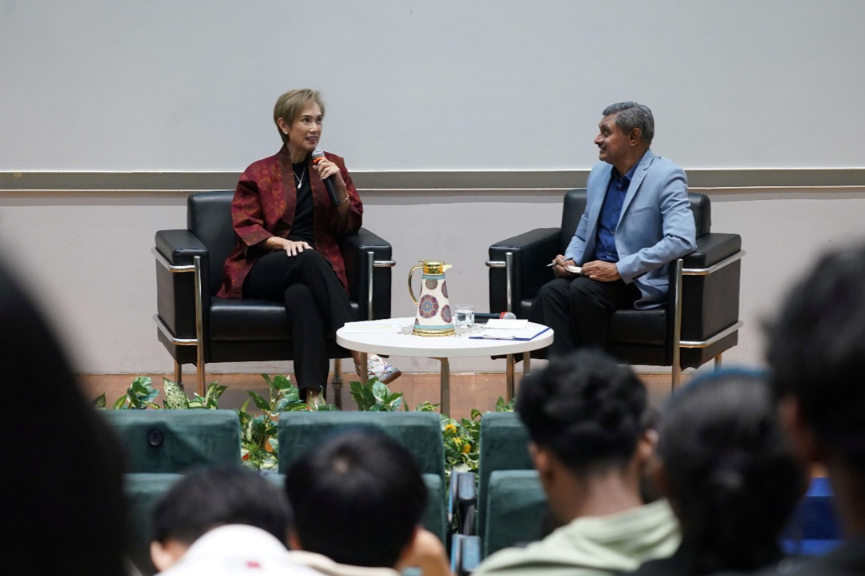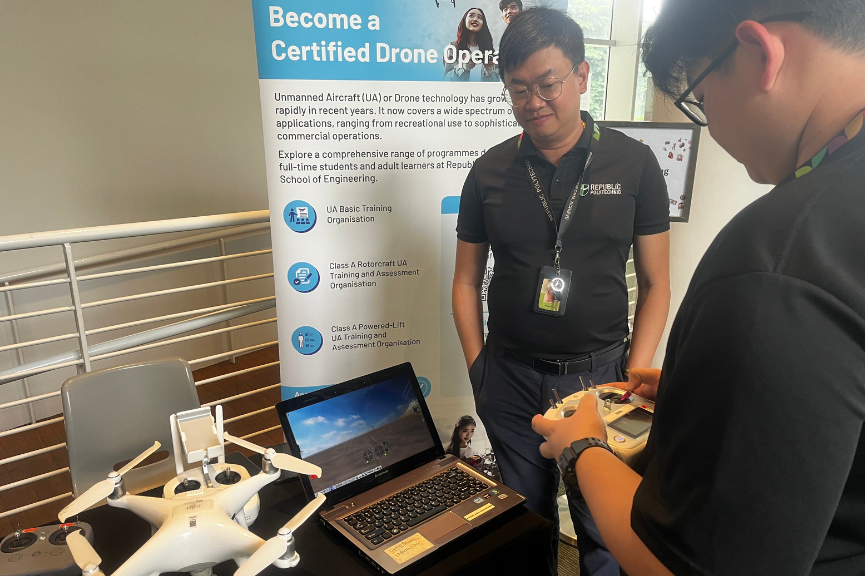When he was an undergraduate at the Murdoch University, Mr Adrian Tay majored in Economics and Communication Studies.
He got much better scores in Economics because “it’s something you can study for” but did not get the grades he had expected for Communication Studies.
Still, he chose a career in journalism because of his passion. Mr Tay, 49, started as a Broadcast Journalist at CNBC Asia and has been in editorial and communications roles in various organisations in his career that spans over two decades. He is today Senior Editor at LinkedIn News. He said: “Go with your passion because that will be what drives you in the long run.”
This was just one of the many words of wisdom dished out by industry practitioners at the Diploma in Mass Communication (DMC) Specialisation Track Talk organised by RP Institute of Public Relations Singapore (IPRS) on Thursday (20 July).
Every year, DMC Year 2 students are invited to the Specialisation Track Talk so that they can make an informed decision when they choose their specialisation in their final year. The two tracks are in Journalism and Public Relations/Marketing Communications.
Besides Mr Tay, the other guests were Mr Brian Witte, General Manager at Ruder Finn and Ms Marion Ang, RP Alumni and Founder of TriOn & Co. Ms Ang, 30, graduated 10 years ago from RP’s then-Diploma in Communication and Information Design.
The online session was attended by more than 60 students who signed up to find out what it is like to be a journalist or a PR practitioner.
“Can I be a journalist if I am an introvert?”
During the Question and Answer (Q&A) session, one student asked: “Can I be a journalist if I am an Introvert?”. The unanimous answer from the industry practitioners was a resounding “Yes”!
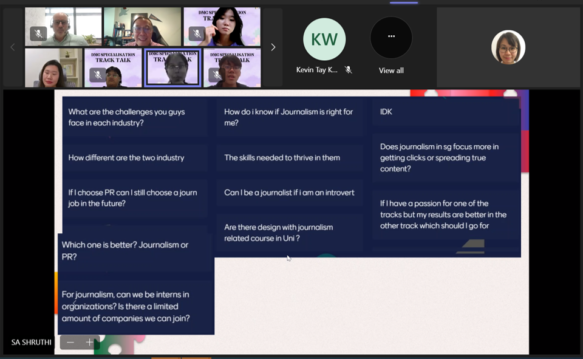
Mr Witte said that some people have the misconception that extroverts excel in PR work because “they party all the time”. This cannot be further from the truth. Mr Witte explained: “We do a lot of desktop work, such as writing and research – these are essential skills for a PR practitioner.
“I remember we had a senior copywriter… when he first joined, I noticed that he just sits and writes in a corner, but his content is amazing. So, be assured that you don’t have to be the life of the party all the time. Everyone brings something to the table,” said Mr Witte.
Ms Ang added that it does not matter whether you are an introvert or an extrovert. She said: “At the end of the day, it is about collaboration and working as a team. What’s more important is you have good communication skills and have the ability to work well with others – these are traits that will see you succeed whichever track you choose eventually.”
If I Choose PR, Can I Still Be A Journalist in future?
The short answer is Yes, although based on anecdotal experience, it is more common for journalists to switch to PR and other roles.
In one of his slides, Mr Tay shared that he had former journalist colleagues who moved on to management roles; some became educators; and today, it is also an option to become data storytellers – a job that entails helping the audience make sense of huge amount of data through storytelling.
He added that his short stint in communications work helped him to better appreciate the hard work that goes into PR work.
Ms Ang shared her own experience starting out at boutique PR and marketing agencies before joining Burson-Marsteller, one of the leading global PR agencies in the world (now known as BCW) under the Corporate, Public Affairs and Government Practice division. She founded TriOn & Co with two of the best partners Charu and Joel in April this year.
“Keep an open mind. Be open to all learning opportunities. Be a problem solver; be tenacious and be hungry to learn – these traits will serve you well in whatever jobs you do in future,” shared Ms Ang.
What Some Students Said
DMC second-year student Reiko Tan, 17, who is inclined to choose the Journalism Track, said: “I think having people working in the industry coming to share provided a deeper perspective, such that I was able to better understand the various paths that each specialisation track can lead to. Also, inviting an alumni who did not focus on the things she is doing now and instead, provided advice as a senior engaged me more, and given that she is currently in Public Relations despite being in the Journalism track during her time in RP made me feel no matter what path we choose, it does not determine the future, so just have fun with what interests me more now.”
Another student, Caeshia Limpin, 17, enjoyed the candid responses during the Q&A. She said: “I find the Q&A portion of the talk very useful as they addressed burning questions that we have for the respective tracks. From questions whether introverts can be journalists to being able to switch tracks in between, the guests cleared out doubts with good insights from the industry. Furthermore, they have given us a sort of “inside look” into what the industry is like to help us make an informed decision on which track to take.” Caeshia has decided on the PR track.

